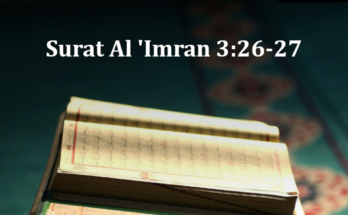— Reciting Surat Al Baqarah at home
Praise be to Allah.
The Prophet (blessings and peace of Allah be upon him) has told us of the great virtue of Soorat al-Baqarah as a whole, and of some of its verses, such as Aayat al-Kursiy and the last two verses of the soorah. Among the things that he (blessings and peace of Allah be upon him) has told us about its virtue is that the devils flee the house in which this soorah is recited, and that is beneficial in protecting against and remedying sihr (witchcraft).
It was narrated from Abu Hurayrah that the Messenger of Allah (blessings and peace of Allah be upon him) said: “Do not make your houses into graves, for the Shaytaan flees from a house in which Soorat al-Baqarah is recited.” Narrated by Muslim (780).
It was narrated that Abu Umaamah al-Baahili said: I heard the Messenger of Allah (blessings and peace of Allah be upon him) say: “Read Soorat al-Baqarah, for reciting it regularly is a blessing and forsaking it is a cause of regret, and the magicians cannot withstand it.” Narrated by Muslim (804).
It is not stipulated that it be recited in a loud voice; rather it is sufficient that it be read and recited in the house, even if it is recited in a low voice. Similarly, it is not stipulated that it be recited all in one go; rather it may be recited in stages. And it is not stipulated that it be read by only one member of the household; rather if it is shared out among them, that is acceptable. However, with regard to all of that, the best is if it is recited all in one go by one person.
It is not permissible to rely on the recitation coming from a broadcast or recording; rather it must be read directly by the members of the household themselves.
Shaykh Muhammad ibn Saalih al-‘Uthaymeen (may Allah have mercy on him) was asked:
There is a hadith from the Messenger of Allah (blessings and peace of Allah be upon him) which says that if a person recites Soorat al-Baqarah, the Shaytaan will not come into his house. But what if the soorah is recorded on a tape; will that achieve the same result?
He replied:
No, no; the voice on the tape is nothing and will not serve any purpose, because it cannot be said that one has read or recited Qur’an; rather it may be said that one has listened to the voice of somebody who recited it before. Hence if we record the adhaan of a mu’adhdhin, then when the time comes we play it over the loudspeakers, and we leave it to call the adhaan, is that acceptable? It is not acceptable. If we record a moving khutbah (sermon), then on Friday we play this recording of the “imam of the microphone”, and the recording says “As-salaamu ‘alaykum wa rahmat-Allahi wa barakaatuhu (peace be upon you and the mercy of Allah and His blessings),” then the mu’adhdhin gives the call to prayer, then the recording of the khutbah is played, is this acceptable? It is not acceptable; why is that? Because this recording is a voice that was recorded in the past. It is like if you wrote it on a piece of paper or put a Mushaf in the house; is that sufficient instead of reading or reciting it? It is not sufficient.
As’ilat al-Baab al-Maftooh (question no. 986).
But if there is no one in the house who is able to read or recite Soorat al-Baqarah, and there is no one who can recite it for them in the house, and they use a recorder to recite it, then what appears to be the case – if Allah wills – is that it will serve this purpose and make the Shaytaan flee from the house, especially if there is someone in the house who is listening to the recitation from the recorder.
And Allah knows best.




